Thursday 10 July
Here's what's happening today:
Conference Sessions (Rooms 1 - 7)
- Opening Keynote (Room 1)
- Tracks: Art, Business, Coding, Design, Discoverability, Indie (Rooms 1 - 4)
- Audio Track (Room 5)
- Free Roundtables (Room 6)
- Indie Bootcamp (Room 7)
Expo
- 50+ stands
- Indie Showcase - Vote for your favourite game HERE
Networking
- Meet@Develop Meeting Zone (Expo Gallery 2nd Floor) - Find out more HERE
- Networking Lounge in the Expo
- 13.00 - 14.00: The Pause Collective Sound Bath in support of SpecialEffect and Safe in Our World in The Quiet Room
- 17.00: Final fun session plus Indie Showcase Winners announced in Room 1 everyone welcome!
- 19.00: The post-conference party in support of SpecialEffect and OneSpecialDay at Revolution, 77 West St,BN1 2RA Book your place HERE
Lunch
- For Conference Pass holders only (Expo Gallery 2nd Floor)
Free Creche
- Find out more HERE
Don't forget your free ice cream from the van at the front of the hotel courtesy of Hangar 13 Games!
Downloads
Conference Programme Event Map Expo FloorplanTodays sessions
10:00am
KEYNOTE: Build What You Have: Rethinking Studio Sustainability in 2025
Many of today’s studio leaders came up experimenting with whatever tools they had - hacking, prototyping, modding, and storytelling in unexpected ways. That same mindset is exactly what the industry needs now, not just to survive, but to rediscover why we make games in the first place.
In this keynote, Code Coven founder Tara Mustapha shares a vision for building sustainable, inclusive studios in a time of economic pressure and creative uncertainty. Drawing from her firsthand experience supporting hundreds of marginalised developers, Tara explores how creative resilience, strategic thinking, cultural leadership and your love of games are key to long-term success, no matter your size or stage.
Whether you’re an indie founder navigating your first fundraise or a veteran rethinking your team’s future, this session is a call to build intentionally, play in the sandbox and break the rules.
Session Takeaway
- How resourceful, experimental thinking can guide studio strategy today
- What sustainable, inclusive studios look like in practice
- Where the real funding opportunities are - and how to access them
- Why inclusion is a competitive advantage in an unstable industry
- Practical frameworks for lean hiring, long-term KPIs, and community driven development
Audio Track Welcome & Introduction
This year’s Audio Track hosts, Adele Cutting and Matthew Florianz, welcome attendees and introduce the day’s audio programme.
Finding an Angle: How to Boost Your Audio Creativity and Originality
Veteran audio director, sound designer and acid house pioneer, Suddi Raval, takes a journey through concepts of creativity and originality examining why original audio content is so important and how to foster the right mindset to achieve it more easily. What are the barriers to frictionless flow when finding ground-breaking game sound and music approaches, and what are practical steps you can take and rules you can break to open the door to true creativity and originality.
Session Takeaway
- The case and inspiration for striving to create more original audio
- Why we find it hard to step outside of our comfort zone
- How to train your brain to push the limits of your creativity
11:15am
Building Communities That Run Themselves
How do you build a thriving community from the ground up? What does it take to attract players, keep them engaged, and ultimately transition from a publisher-led space to a player-driven ecosystem?
Join Emma Bodie-Smith, Community Manager at Playstack, as she explores the community-building journey – from laying the foundation to allowing it to run itself. Using examples from Balatro and Abiotic Factor, Emma will discuss the strategy behind setting up community platforms that attract and retain players while paving the way for an organic, player-led future.
Learn how to build a community from scratch, including key tactics for attracting players and keeping them engaged through meaningful interactions and valuable content. Discover why it’s crucial to consolidate your audience early on by providing a central gathering space and how gradually relinquishing control leads to a more authentic, active community.
We’ll explore the benefits of stepping back, the challenges of sustaining player interest, and practical tips for navigating the transition from publisher to player-led spaces. Learn the signs of success – when fans generate their own content, keep conversations alive, and attract new players without your involvement.
Walk away with a fresh perspective on community building and the confidence to nurture a player-led ecosystem that supports your game and empowers your players.
Session Takeaway
- Learn how choosing the right platform and tools, early engagement tactics, and setting the tone play a role in attracting players to your community
- Discover how to build loyalty with consistent, meaningful interactions whilst balancing official announcements with organic contributions
- Explore the early signs of success when a community is ready to transition from publisher-led to player-led
“GrApHiC dEsIgN iS mY pAsSiOn” - What Do 2D Artists Do on 3D Games?
Who creates the coffee shop branding, the handwritten notes, the graffiti, the t-shirt designs, the tattoos in your favourite game worlds? It's time to demystify what a 2D artist does on 3D games in this often misunderstood specialisation.
As a former graphic designer on RDR 2 and multiple GTA titles I'll be discussing this exciting but often forgotten role in game development, talking you through the history of 2D design in games, the general process and best practices behind it and why not all good graphic design is "good" graphic design.
Session Takeaway
- Demystifying the role of a 2D artist working on a 3D game world
- The history of graphic design for game worlds and its purpose
- Best practices for the production of environmental graphic design elements
- A day in the life of an environmental graphic designer for games
Revolutionising Team Building: Gamification and Behavioural Insights for Remote Teams
In today’s remote and hybrid work environments, fostering meaningful connections and improving team dynamics can be a challenge. This session delves into how gamification and behavioural insights can offer fresh solutions for modern team building. Explore practical methods, real-world examples, and innovative ideas to inspire engagement, strengthen collaboration, and boost morale across distributed teams.
Perfect for anyone looking to rethink team building with creativity and technology at its core.
Session Takeaway
- Practical strategies to integrate gamification into team-building initiatives
- Insights on leveraging behavioural science to enhance team dynamics
- Tips for creating scalable, inclusive solutions for remote teams
What Game Designers Can Learn from Cognitive Psychology
As a multi-disciplinary field, game designers often discuss the structure of games and the players’ experience using theories originating from other domains. A well-known example would be the behaviorist theory of positive reinforcement and game reward systems. This lecture introduces another directly connected but overlooked relationship between games design and cognitive psychology.
I will discuss how concepts and theories from the field of cognitive psychology can be applied to the design of games and more specifically puzzle design. The term puzzle is used in a broad context to include any type of challenge which involves an element of mental problem solving. Examples will range from stand-alone puzzles, such as Wordle to those games with puzzles embedded into them, such as Limbo.
Using existing games as examples, I will introduce psychological concepts and models that will provide a framework for game designers to analyze puzzles in terms of their design, and their impact on their players’ thought processes.
The presentation will provide a range of ideas and terminology adapted from cognitive psychology to help designers describe and define new puzzle ideas as well as providing a language by which to communicate design ideas across development teams and with other collaborators.
The presentation will be interesting for all of those involved in game design and development as well as academics working in Higher Education Art and Design as a tangible example of how theory and practice inform each other.
Session Takeaway
- New perspectives on game design and player problem solving within games.
- Understand how players frame and process information, consciously and unconsciously, during puzzle solving.
- A set of concepts and terminology to discuss the game design process and the players response.
- How theory and practice inform each other.
Reading Between the Lines: Integration of Sound, Narrative and Design into Dialogue
Go on a deep dive into how the role of Dialogue Designer came to be, and what it can encompass. This talk will explore how Dialogue Designers at Sony Creative Arts approach projects from a creative, practical and technical perspective, and provide insight on what our dialogue integration processes consist of, depending on the current tools and workflows in place. We’ll refer to practical examples from recent games such as Helldivers II and Until Dawn Remaster to take a peek at some of the tools we used and decisions we made in terms of dialogue pipeline integration.
We’ll discuss at which points on the development cycle Dialogue can have a direct or indirect involvement, and how there can be some discipline overlaps and dependencies with Sound Design, Narrative and Game Design that can greatly impact the overall soundscape of a project.
And finally, we’ll talk about how having knowledge of, and even dipping your toes into other disciplines can be greatly beneficial for your skillset, and your personal and professional development.
Session Takeaway
- Learn about the overlap between Dialogue Design, Sound Design and other game development disciplines and how they differentiate and complement each other
- Discover how we do Dialogue Design within Sony, providing an overview of our general workflows, and some of our tools and pipelines together with the reasons why we work the way we do
- Be inspired to experiment within game development in order to “find your thing”
Mentorship Matters: How Limit Break is Levelling Up Careers in Games
Thriving in the games industry requires more than just landing a job. Career progression, navigating challenges, and achieving long-term goals are crucial at every stage, from junior developer to seasoned veteran. Limit Break Mentorship recognises the unique obstacles faced by underrepresented individuals more than most and works to provide a dedicated space where they can talk through their career development through a 6-month mentorship programme.
Whether you're just starting out, seeking a promotion, or aiming for leadership roles, mentorship offers invaluable support. It provides a safe environment to discuss career challenges, explore opportunities, and gain insights from experienced professionals. Limit Break Mentorship connects people in the games industry, allowing them to share their experiences, define goals, develop strategies for advancement, and build a strong network within the industry.
This panel will showcase the power of mentorship at all career levels, featuring mentors and mentees who will share their stories. Discover how Limit Break is fostering a more diverse and inclusive games industry, and learn how you can benefit from mentorship, whether you're seeking guidance or looking to give back by becoming a mentor.
Session Takeaway
- Mentorship can benefit game developers at all career stages, especially for those in underrepresented groups
- How Limit Break is having a positive impact on career progression and diversity within the games industry
- The advantages for game studios in supporting mentorship programmes, including talent development, improved retention, and fostering a more inclusive and positive work environment
Playing The Long Game: How Composers Can Build Sustainable Careers
In 2025, video game composers are enjoying unprecedented recognition, with their music reaching millions of listeners, enjoying lavish vinyl releases and being incorporated into TV and film adaptations. But behind the success stories lies a more complex question: how can composers turn creative momentum into long-term, sustainable careers?
Join award-winning composer Nainita Desai (Immortality, Tales of Kenzera: Zau), synthwave icon Alpha Chrome Yayo (Promise Mascot Agency), and PRS’s Graham Best for a candid conversation about the real-world challenges and opportunities in scoring for games.
Whether you’re just starting out or scaling up, this panel explores what it takes to build staying power in a rapidly evolving industry.
Session Takeaway
- Pitching and negotiation
How composers at different career stages approach deals with developers and publishers. - Creative collaboration
What to expect when working with indie vs. AAA studios, and how scoring for games differs from film and TV. - Revenue realities
A breakdown of income streams available to game composers. - Career sustainability
Lessons from the long haul: staying creative, relevant and financially stable in a competitive field.
12:15pm
Being a Leader in Game Development: Set Yourself Up for Failure or Success
Bridging the gap between the expectations and the reality of management in game development. This session delves into the major mistakes leaders often make and the crucial takeaways that can turn those mistakes into successes. Gain insights on navigating the complex landscape of game development management and learn strategies to enhance your leadership skills and drive your team towards success.
Session Takeaway
- Attendees will be able to calibrate themselves and their leaders
- They will be inspired to lead teams by preventing micromanagement, fostering creativity, and creating sustainable work environments
- The session will also cover effective communication, building trust, and leadership growth strategies to drive innovation and empower teams
Can’t We All Just Get Along: How Marketing & Production Can (and Must) Work Together
Marketing and production often feel like they’re pulling in different directions—one pushing for more visibility, the other focused on delivering the best possible game. But when these teams collaborate effectively, the results are powerful. In this session, a producer and product manager from Fireshine Games share their experiences working together on Tales of Seikyu’s Early Access launch as well as an upcoming unannounced game. Through real-world examples and a candid post-mortem, they’ll discuss how aligning development milestones with marketing strategies leads to stronger marketing beats and launches, better audience engagement, and a smoother workflow for everyone involved.
Session Takeaway
- How to integrate marketing into your development process without disrupting production.
- Tips for balancing creative vision with audience expectations.
- The good, the bad and the ugly from a real-world Early Access launch.
- Actionable steps to improve communication and workflow between teams
How VIDEOVERSE Successfully Delivers Several Emotional Gut Punches
How do you make players laugh, cry or even cringe when you’re working with a small budget or team?
‘VIDEOVERSE’ is a short, intimate narrative adventure game set in an early 2000s online gaming community. Made by indie developer Lucy Blundell (previously ‘One Night Stand’), it was one of 2023’s highest-rated games and praised for its emotional impact. But how did the story of VIDEOVERSE come about?
This session will analyse the techniques used in VIDEOVERSE and similar emotional media – How music, sound effects, art and narration come together to effectively deliver several emotional gut punches, and the benefits these scenes can add to video games. There will also be a deeper, personal look at writing from past traumas and memories while protecting one’s mental health.
Finally, this session will leave you with tips and suggestions on how to stay in-touch with your emotions and keep your heart inspired.
Session Takeaway
- How to deliver emotional gut punches effectively, within a small budget or team
- How to use personal experiences in your game’s narrative whilst protecting your mental health in the process
- Why getting a strong emotional reaction from player can be a good tactic for success
Unreal Engine: Five Important Lessons
In this speaker session, experienced Unreal Engine experts Tanglewood Games will share their 5 most important lessons on Unreal Engine. Keith has worked with Unreal Engine for 13 years, and the Tanglewood Games team have seen and worked to adapt to huge changes on the premier video game development tool. Speaking from a position of authority, Tanglewood Games will explain the most important considerations for a studio and developers to make when using Unreal.
Session Takeaway
- Considerations to make before, during and after using Unreal
- Important lessons for studios and developers to learn on Unreal, from Unreal experts
- An understanding of the development history Unreal Engine has been through since its original creation
LEGO Horizon Adventures in Sound Design
An exciting and informative dive into the audio design on LEGO Horizon Adventures; presented by Playstation Studios Creative Arts and Studio Gobo. The session will cover: Creative direction
|
Session Takeaway
- Fresh ideas for sound design
- How to optimize audio for clarity and efficiency
- Foundational practices for multiplatform support
The Adaptive Leader: Navigating Uncertainty
In an industry defined by rapid change and unpredictability, leadership has never been more critical, or more challenging. This roundtable invites studio leaders, team leads, and decision-makers to explore what it means to be an adaptive leader in today’s games industry.
Through open discussion, we’ll tackle key questions: How can leaders foster transparency and trust in times of uncertainty? What strategies can help teams remain flexible without losing focus? And how do we balance the need for resilience with the realities of an ever-changing landscape?
Drawing on real-world experiences and collective insights, this session will provide a space for honest dialogue, shared learning, and actionable ideas to take back to your studio. Whether you’re navigating layoffs, restructuring, or simply the day-to-day challenges of game development, this roundtable will equip you with fresh perspectives on leading through uncertainty.
Session Takeaway
- Practical strategies for fostering transparency and trust in teams
- Insights on balancing flexibility with focus in a fast-changing industry
- Ideas for building resilience while staying grounded in reality
A Guide to Revealing Your Unannounced Game
Announcing a game for the first time is an exhilarating yet stressful endeavor. After dedicating months, or more likely years, to development, the time finally arrives to make that crucial first impression. Whether presenting on a big stage, participating in an online showcase, or unveiling solo, the process involves a number of considerations, increased involvement from various parties, and the imperative of secrecy.
In this session, we'll explore the essential steps necessary for a successful announcement. While we won't delve deeply into game development specifics, we'll cover leak prevention strategies, optimal trailer creation practices, website and store page setup, supporting marketing campaigns, ideal timing, licensing, and establishing launch goals. Understanding that success metrics vary for each launch, we'll discuss how to define success, tailored to your specific circumstances.
Additionally, we'll address teamwork dynamics—how external partners can best support studios/publishers and vice versa—to maximize collaboration efficiency.
This talk doesn't aim to trivialize the significance of the moment; rather, it is intended to offer reassurance drawing from firsthand involvement in numerous high-profile announcements, and equip you with the confidence that, ultimately, everything will fall into place.
Session Takeaway
- A list of considerations when preparing to announce your game
- Leak prevention methods
- How to get the most out of your external partners and agencies
- Tips on picking the right optimization strategies and defining success
- Reassurance that everything will be okay
2:00pm
Co-Op Mode: Mastering Co-Development as a Producer
Co-development; it’s not just outsourcing—it’s a partnership. In this talk, Alix Taylor-Searle, AAA co-development producer, will break down what makes co-dev successful, from building trust with clients to aligning goals and delivering on expectations. Drawing from her real-world experiences on Sea of Thieves and beyond, she will explore the essential producer mindset, practical processes, and key communication strategies that turn external teams into trusted collaborators.
Whether you’re new to co-dev or looking to refine your approach, this session will give you actionable insights to help your team thrive in a shared development space.
Session Takeaway
- Practical tips on how to build trust with a co-dev client through good communication, shared vision and evidence of work
- Understand how to effectively manage scope creep when working with co-dev clients
- Best practice for maintaining long-term relationships with co-dev clients
Earning Gamers Attention: A Deep Dive into the Marketing Creative for Still Wakes the Deep
A case study session dissecting the successful launch campaign for Still Wakes The Deep in 2024 – sharing creative insights from producing the trailers for this hugely popular game. This session will be hosted by developers from The Chinese Room, who created this haunting narrative horror game, along with artists from Big Farmer, the creative production studio who worked with them to create a trio of increasingly unsettling trailers for the launch.
This small panel from The Chinese Room and Big Farmer will take a deep dive into the whole process, covering subjects from the creative strategy, production (onboarding and collaborating with an external studio), creative direction (nailing the audio and visual approach of the trailers) or technical (how we built the creative in UE5).
The game achieved great commercial success, scooping over 50 industry award nominations as well as the trailers themselves winning some global creative awards. The title earned fantastic reviews by the players along with industry press, including The New York Times and The Guardian. This session would offer inspiration and hands on advice for dev teams on creating truly impactful marketing campaign creative for their games.
Session Takeaway
- In-engine cinematic high-level techniques & how to work with external cinematic artists
- Making impactful creative that stands out in a crowded market
- The significance of audio excellence for engaging audience emotions
Moving from Unity to Unreal: An Indie Studio’s Perspective
Deciding which game engine to make your next title in can be a difficult task for any studio. At Junkfish, we recently made the decision to go from a Unity-only studio, to developing and releasing titles in Unreal as well. This session will compare our experience between the two engines, as we discovered for ourselves the differences in features, solutions and pain points of the two engines.
As we transitioned away from the prefabs and C# of Unity, we had to learn Unreal’s code and feature equivalents, handle differences in project architecture, and adapt to various workflow changes. This talk will focus on which aspects of development became easier, and which became more challenging, largely from a programmer’s perspective.
My aim is to provide a developer’s insight to help other studios determine if switching from Unity to Unreal, or vice versa, is the right choice for them.
Session Takeaway
- Insights into the development differences between Unity and Unreal
- Overview of our team’s transition from Unity to Unreal
- The hindsight of developing a project in a new engine
Making the Lives of Audio Designers Easier in Senua’s Saga: Hellblade 2
Game development is an incredibly collaborative industry, where professionals from widely varied backgrounds come together to create something fantastic. Audio designers have a very important role in creating an immersive experience for the player with sounds, music and VO. The role of an audio programmer is to smooth out and optimize the pipeline from sound creation to implementation in-engine, so audio designers can focus on the creative part of the process. In this behind-the-scenes look at the production of Senua’s Saga: Hellblade 2’s award-winning audio, Siddhant Ravi will talk about some of the systems he implemented, the thought process behind them, the results and benefits, as well as things that could be improved upon. He’ll reflect on the value of cross-discipline understanding and collaboration, and how it led to innovations which exceeded both designers’ and programmers’ initial expectations.
Session Takeaway
- Gain some ideas and inspiration to customize the Wwise integration with the game engine to suit the audio team’s needs.
- Learn about some of the systems implemented to achieve the audio vision in Senua’s Saga: Hellblade 2.
- Understand the importance of familiarizing yourself with the workflow of audio designers to better understand their needs during development as an audio programmer.
The Art of Feedback
Feedback is everywhere, from performance reviews to post-mortems, and it’s essential for growth. But how many of us feel comfortable asking for it, receiving it, or giving it effectively?
In this Roundtable, I’ll share practical tips and techniques on how to handle feedback like a pro in our fast-paced, beloved gaming industry.
You’ll learn how to ask for feedback with confidence, especially in high-stakes moments like milestones or sprints, and how to receive it graciously (even the tough stuff!). I’ll also show you methods that work and those that don’t when delivering feedback, so you can help your team grow and thrive. Plus, I'’ll highlight common mistakes to avoid, so you can get the most out of feedback without the typical pitfalls.
You’ll leave with tools that make feedback a powerful ally, not a dreaded task.
Let’s make feedback easier, more effective, and more empowering for everyone!
Session Takeaway
- Effective techniques for asking for feedback (who, when, where, and how)
- How to receive feedback with confidence (especially when it’s negative!)
- The best methods and tools for delivering feedback that fosters growth (and which ones to avoid)
I Did Survive ‘til 25… Now What? A Start-up Retrospective
Blink Games started its game development journey in 2023, backed by a renowned animation studio, crafting high-quality indie games. “If you pitched me this 3 years ago, I would have signed it on the spot”... We heard this many times, prompting us to think that things in the industry were changing. This is the story of how we tried securing funding for our game navigating a market in decline. How we realized that big indie projects are too risky for publishers, and why validating a game idea is essential to move the conversation forward.
In this talk, you will gain an understanding of everything we learned about creating and pitching games in this economy and how we’ll iterate on our game development philosophy to adapt to an ever-changing market.
Session Takeaway
- The indie game industry isn’t dying, it’s evolving. Adapt, and you’ll thrive
- Publishers are in low-risk mode. Focus on small games, validate your idea, reduce the budget and have quick production iterations
- To validate your idea, use platforms like Itch.io. Set clear KPIs. If you hit your KPIs, congrats, the game idea is validated, if not kill it and start fresh. Rapid prototyping is the way forward
- If your game takes 3 years and 2 million in budget (especially if it’s your first game) you may want to cut, cut and cut. No one is risking this much unless you show strong KPIs that suggest a substantial return on investment. Focus on the core fun of your game and create a smaller, more focused version of your original idea. Save extra features for a possible sequel
- To further lower costs, look into government grants, tax breaks, and outsourcing
- Transmedia content is on the rise. Think about exploiting existing IPs. Building on established IPs can bring a built-in audience and lower the financial risk
3:00pm
Animating Complex Emotions: Bringing Authenticity to Character Performance
After brief introductions, we’ll explore how emotions drive human experience and shape character performances. While basic emotions like joy or anger are easy to convey, complex emotions—such as trust or love—are more nuanced and prone to clichés. This talk introduces two psychology-based tools that help animators navigate emotional complexity: Plutchik’s Wheel of Emotions and the Bodily Maps of Emotion study.
Emotional Complexity & Challenges
Emotions overlap and rarely exist in isolation. A 2017 UC Berkeley study identifies 27 distinct emotions, emphasizing their fluidity. In game animation, capturing this depth is challenging due to production constraints, gameplay priorities, and design limitations. Our method provides a structured approach to overcoming these hurdles.
Reference & Creativity
While reference is essential for animation, relying solely on it can lead to unoriginal performances. Inspired by Picasso’s idea that “great artists steal,” animators must study, internalize, and reinterpret references for unique, authentic character expressions.
Tools & Application
Plutchik’s Wheel of Emotions helps animators explore emotional intensity and contrast, such as how joy and fear combine to create excitement. The Bodily Maps of Emotion study further informs movement choices by highlighting how emotions activate or deactivate different body areas.
Through hands-on exercises and workflow examples, this session provides practical tools to elevate performances beyond clichés, encouraging animators to integrate these techniques into their creative process.
Session Takeaway
- Attendees gain practical tools and techniques to simplify portraying complex emotions.
- They learn to blend character personality with authentic emotional depth, overcome common challenges in game animation, and move beyond clichés.
- The presentation inspires creativity, empowering animators to create performances that feel natural, engaging, and emotionally resonant.
Zero to Fun: “Vibe Code” Games Together (non-coder friendly!) PART 1
Ever wanted to build your own game or app but coding was a barrier? Or are you an experienced coder curious about how AI can accelerate your creative process? This interactive workshop is for you!
Join us for a hands-on session where you'll discover the unironic magic of "vibe coding" – using intuitive, conversational instructions with Generative AI to bring your game idea to life immediately. We'll guide you step-by-step to create a simple, fun game or application, regardless of your prior coding experience. Experienced coders can leverage their skills and bypass boilerplate directly to creating fun content.
Bring your laptop and your imagination – let’s build something amazing together!
Session Takeaway
- Hands-on experience creating a working game or app using Generative AI.
- Fundamental skills in guiding AI to generate functional code.
- A project to share and the inspiration to continue exploring in AI-driven development.
- Vibe Code something new from Zero!
Narrative VR and Its Bright Future (we all hope)
A case study of The Werewolf Experience a restricted 6DoF interactive branching narrative VR piece where players have to use their own voice to howl like a wolf to trigger the branches in the story. It played Cannes and was the top attraction at the NEUU Space in Tokyo for three months. We will also look at the long-tail of the experience as it continues to monetize through VR arcades, site-specific events, and home release. We will also look at why Narrative VR is the next big thing as LBE shooting events become more and more passé.
Session Takeaway
- Options for monetization of VR games and narratives and who to contact (and why)
- Key overview of current VR ecosystem
- Why and what interactions work for VR pieces and how to counter problems
Aero Astro Arts - Creating Games Lightyears Ahead
In this session Mark with outline our methodology for creating our big vision indie video game titles, challenges, and innovative solutions we have implemented as a small self-funded studio to keep up with larger fully funded powerhouses. We will talk about the way we use our tools to save time and money. While keeping our distinctive visual appeal.
Antonio will talk about branding and the logo's importance and history, in the context of a video game's identity.
Mark will talk about creating a big impact in the industry for the next generation and becoming a trusted member of the industry community.
Session Takeaway
- You can still create amazing gaming experiences with little to no money or help
- After doing it alone it is ok to network, build alliances and participation in the village
- Break, bend and change the norms of industry by creating your own doors, when they are all locking you out
Optimising the Music Commissioning and Creation Process For Games
Whether you are a developer or a composer, most of us muddle through creating the music experiences for our games with a process based on received wisdom and the school of hard knocks. But so much of the received wisdom is flawed, and what works for one composer or client doesn't necessarily work with another. To help you navigate these issues, Kenny Young has put together a nose-to-tail analysis examining many of the fundamental aspects of commissioning, directing and collaborating to create music experiences for games. With over 20 years of experience on both sides of the fence creating critically acclaimed and commercially successful games, Kenny is expertly positioned to give holistic insight that will benefit attendees of all experience levels.
Session Takeaway
- Learn how to hire the right composer for your game and give them the best chance of success
- Gain insight into the realities of music direction rather than the PR-centric "elevator pitches" encountered in presentations and post-mortems
- Understand key variables throughout the process and the impact they have so you can adapt to different contexts and take them in your stride
The Rollercoaster Ride of Being Made Redundant
Losing a job is more than a professional setback: it’s a deeply emotional experience. Even when the signs are there, redundancy is a shock, leaving many to navigate feelings of grief, anger, and self-doubt before reaching clarity and acceptance.
This roundtable will explore redundancy through the lens of the 7 stages of grief, reframing them into key phases many experience: the initial shock and denial, the anger and bargaining that follows, the guilt and self-doubt that often take hold, and ultimately, the reflection, testing, and eventual excitement for new opportunities.
Through shared stories and open discussion, we’ll explore questions such as:
- What emotional responses are common, and what kind of support do newly redundant employees need?
- How do you manage the emotional toll of rejection and self-doubt?
- How can you reframe redundancy as an opportunity for growth?
While we will acknowledge the emotional impact, the heart of this discussion will focus on the Testing & Reflection stage—the phase where people have the most agency. We’ll talk about practical ways to redefine career goals, network effectively, and regain confidence in the job search.
Whether you’ve been through redundancy, are currently experiencing it, or want to support others, this roundtable provides a space to share, reflect, and gain new perspectives.
Session Takeaway
- Understand that redundancy is an emotional journey, and all feelings are valid
- Gain a new lens through which to view their situation
- Gain peer support and a lessened sense of shame
- A renewed sense of agency and practical tips and ideas on what to do next
Indies, Please Don’t Prematurely Launch Your Game!
Game development is tough, but often tougher than making the game is the final push to ship your game. In the highly competitive games market, having a polished release with good UX, in depth settings adjustment and a whole slew of little touches that just make the game feel GOOD is considered bare minimum. And yet, time and time again, I have seen developers launch their game in a state that despite being technically *done*, it feels rushed and incomplete, and usually sinks like a brick in the ocean. But do not despair! This talk will give you the details you need to make your game feel as finished as possible!
Session Takeaway
- An attention to detail is key to shipping your games
- Your options menu can make or break a player's experience
- Technical issues can tank a great game's reputation while polish can elevate an okay, or good game in player's eyes
4:00pm
VR Pipeline Essentials: Avoiding Pitfalls and Maximising the Immersive Experience
Sliced Bread Animation has been developing immersive experiences for over 12 years, working on VR projects across industries such as healthcare, construction, and finance.Through this session, we will share essential lessons learned in developing VR pipelines - balancing creative storytelling with technical execution.
Attendees will gain insights into the fundamental do’s and don’ts of VR development, from narrative structure and user engagement to technical workflows, optimisation, and deployment strategies. We will break down the core components of a successful VR pipeline, including content creation, interaction design, performance considerations, and cross-platform compatibility.
This session is designed for both creative and technical professionals - whether you’re crafting immersive narratives, optimising VR performance, or navigating third-party integrations. We’ll also highlight common pitfalls, such as motion sickness triggers, inefficient workflows, and scalability challenges.
By the end of this talk, developers will walk away with practical strategies to streamline their VR development process, ensuring a seamless blend of storytelling and technical execution that enhances user experience and engagement.
Session Takeaway
- Key principles for designing immersive and engaging VR experiences that resonate with audiences
- Practical coding and optimisation techniques for scaling VR projects across multiple platforms and devices
- Best practices for maintaining narrative flow and storytelling in an interactive VR environment
Zero to Fun: “Vibe Code” Games Together (non-coder friendly!) PART 2
Ever wanted to build your own game or app but coding was a barrier? Or are you an experienced coder curious about how AI can accelerate your creative process? This interactive workshop is for you!
Join us for a hands-on session where you'll discover the unironic magic of "vibe coding" – using intuitive, conversational instructions with Generative AI to bring your game idea to life immediately. We'll guide you step-by-step to create a simple, fun game or application, regardless of your prior coding experience. Experienced coders can leverage their skills and bypass boilerplate directly to creating fun content.
The second session will build upon the first session and talk about some of the ways you can push your initial idea further… or how to start again with a new one. This is still a great place to jump in if you missed it!
Session Takeaway
- Hands-on experience creating a working game or app using Generative AI.
- Fundamental skills in guiding AI to generate functional code.
- A project to share and the inspiration to continue exploring in AI-driven development.
- Vibe Code a second idea, or push your first idea further!
How to go Viral on Social Media Without Spending Time on Social Media
Making indie games is hard. Selling games is hard and getting harder. Working longer hours, spending your weekends plugging your game on socials, tiring yourself out and distracting from development is not the answer. While many devs spend hours and hours promoting their game on social media, using all sorts of hashtags, jumping on trends, and optimizing their TikToks for the FYP, there’s another way.
Marketing Manager James Clements recently hit over 150,000 Steam wishlists in just 3 months, in no small part driven by social media… by spending as little time as possible on social media. This success was not luck (although it did play a role). It was the result of a repeatable strategy.
This session will uncover how he did it, and how you can apply this approach to maximise your chances of success – while also freeing up valuable time.
Session Takeaway
- How to secure meaningful organic influencer coverage while spending as little time as possible on social media
- How to use data and audience analysis to ensure there is a big enough market for your game to succeed
- How to sell your game to the right players in one sentence
- How to establish a strong level of organic player interest on Steam
UI That Grows With You: The Art of Future-Proofing Your Game’s Interface
Game development is like trying to build a plane while flying it. Budgets disappear, roadmaps turn into treasure maps, and teams have to adapt on the fly. So why do we still design UI like everything will go exactly as planned?
This session dives into the chaos and shows how Atomic design principles can help you build a UI that's flexible, scalable, and actually works for the long haul. Because let’s be honest, a modular UI isn’t just a nice-to-have. It’s how you keep your sanity.
We’ll cover:
- Why modular UI saves time and keeps teams from endless iteration loops
- Lessons experience, what works and what doesn’t
- How indie teams can future-proof UI without overspending
Using practical examples, this session will show you how to simplify the UI, keep budgets in check, and avoid those painful do-overs. By the end, you’ll have a clearer, smarter way to tackle UI design that makes life easier for your team, keeps budgets in check, and sets your game up for success.
Session Takeaway
- Build Adaptable UI: Use Atomic Design to create interfaces that easily adjust to new features and player needs
- Learn from Real-World Examples: Explore case studies highlighting successes and lessons in Atomic Design application in UI
- Future-Proof Cost-Effectively: Implement modular designs to enhance your UI without escalating costs
Behind the Sounds of Star Wars Outlaws
In this talk, Massive Entertainment's Jacob Coles, Lead Audio Designer, and Martin Weissberg, Principal Sound Designer, will be taking you through the development process behind Star Wars Outlaws. Starting the presentation with how to stand out within a galaxy of references and forming creative pillars, they will also explore the goal of creating authentic immersive worlds, how they approached the sound of a scoundrel in the galactic underbelly, and how it all came together in the mix.
Session Takeaway
- Learn how Star Wars Outlaws found it's place in the universe
- Hear how the team used field recording and snowdrop tech to provide virtual tourism
- Insights into crafting the scoundrel, Kay Vess through her foley, toolbox, and vehicles
- A peek behind the curtain of the mix, showing what approaches were used
User Interface Design Roundtable
User Interface design is uniquely situated in the games development ecosystem. Bridging the gap between Design, Art and Code, User Interface is often the vital differentiation between games.
This roundtable is an opportunity for UI Artists and Designers of all levels to meet and exchange knowledge and wisdom, and discuss the various challenges we have to deal with in our careers.
Non UI Artists and Designers are very welcome to come and gain an insight into how to work closely with their UI colleagues to create visually engaging and intuitive games!
A vital discipline within games with many facets and aspects, User Interface makes the difference between a market leader and a failure. This roundtable is a chance to discuss some of the larger questions about how a user interface should be designed and built and hear from experienced as well as rising talent.
Session Takeaway
- You will have a better idea of how UI artists and designers work in other studios
- You will get helpful advice about best practises in development process, documentation, project and asset organisation
- You will get some tips to improve communication with other departments in your workplace
- Gain pertinent insight into the specialism that bridges the gap between Design, Art and Code
- Meet some of the community of UI artists and designers working in games
Phoenix Indies: Rising from Redundancy
The Phoenix Indies Roundtable brings together founders of indie studios that emerged from industry-wide redundancies. This session tackles the big question: What happens after layoffs?
With 46% of game industry workers affected by company restructures and 10% losing their jobs, starting an indie studio has never been more tempting. A common setback for those looking to take the leap is that the skills needed to create great games don’t always translate into running a business. This roundtable discussion sheds light on the process of starting an indie studio, the common challenges, and the lessons learned along the way—making the journey feel less daunting.
Yasmina shares her experience co-founding Maximalist in an open discussion that guides attendees toward resources to build confidence and gain the tools necessary to create a new generation of game studios. Indie development isn’t just about survival—it’s about building something better.
Session Takeaway
- How to turn frustration into opportunities for creativity and positive change
- Indie Studio 101: A practical guide to launching your own studio
- New funding models, tools, and resources that make indie success more possible than ever
5:00pm
The Final Countdown & Indie Showcase Winners Announced
End your Develop 2025 on a high (or at least a very weird note)...
Join us for a Taskmaster-style showdown featuring:
🎮 Video game trivia
🧠 Puzzling nonsense
💥 Physical challenges of questionable purpose
🏆 Prizes include actual items (Develop passes) and concepts like ‘smug satisfaction’ and ‘mild regret’
The Rules?
They’re made up on the spot. But we can confirm that fire beats leaf beats water beats fire. Expect that logic to settle more than one argument.
Your hosts, Stevie Ward and Jon Torrens, will be your gloriously biased BOSSES. Will they be fair? Or petty? Only the fates (and their caffeine levels) can say. They’re easily bribed, too. And vain.
Expect:
✔ Tomfoolery
✔ Shenanigans*
✔ Silliness
(*the value of shenanigans may go down as well as up)
Also: There’s beer. Which probably should have been the first bullet point.
Will you survive the madness?
Of course you will*.
20 Years of Forza Motorsport - An Audio Retrospective
May 2025 marks the 20th anniversary of the release of Forza Motorsport on the original Xbox. In a fascinating look behind the scenes, Nick Wiswell, the Audio Director at Turn 10 Studios for the last 15 years will re-visit some hugely important moments in his journey. Drawing out universal lessons learned, he’ll explore the evolution and management of the creative process, deep dive into some technical audio innovations and discuss some of the community interactions that have helped keep Forza at the forefront of gaming for two decades and counting.
Session Takeaway
- A history of Forza Motorsport including key innovations in the franchise with an audio focus
- A Retrospective including key learnings on the audio creative, technical and production processes that have been used over the last 20 years at Turn 10 and how they have evolved or changed
- A deep dive into a couple of key audio features from previous games
- How to work with a community of players to build trust and respect
Open Mic 2025
In keeping with Develop Conference tradition, our panel of game audio experts limber up for an inclusive town hall style discussion with conference delegates about the current state-of-the-art of music, sound and dialogue for games and what the future holds for game audio business, technology and creativity.
Moderated by Frontier Developments' Matthew Florianz.
Thursday 10 July Official Events
13.00 - 14.00: The Pause Collective Sound Bath in support of SpecialEffect and Safe in Our World in The Quiet Room
17.00: Final fun session plus Indie Showcase Winners announced in Room 1 everyone welcome!
19.00: The post-conference party in support of SpecialEffect and OneSpecialDay at Revolution, 77 West St BN1 2RA
Book your place here
















































































